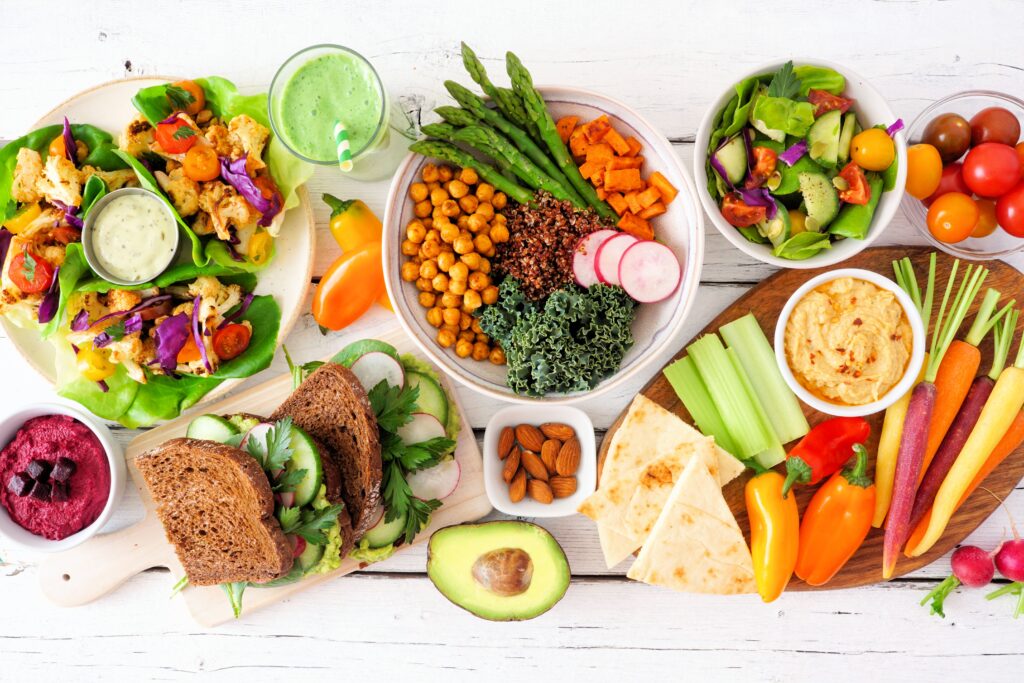For anyone who has suffered from a migraine you would be able to confirm that they can be debilitating. There are ways to manage a migraine if one occurs but what would be preferred is lifestyle strategies to prevent the occurrence of one happening. One of these factors may be your diet.
The Mayo Clinic defines a migraine as ‘a headache that can cause severe throbbing pain or a pulsing sensation, usually on one side of the head. It's often accompanied by nausea, vomiting, and extreme sensitivity to light and sound. Migraine attacks can last for hours to days, and the pain can be so severe that it interferes with your daily activities.’(1)
Previous research has suggested that vitamin C may decrease the frequency and intensity of migraines. However, this research is considered quite weak due limitations in the sample size. New research has demonstrated that there is a potential link between vitamin C and risk of migraine occurrence. (2) The study used data from 1999-2004 in the National Health and Nutrition Examination Survey (NHANES) . In this study there were 4101 participants and of this population 17.1% suffered from migraines. (2)
Exciting results supported previous research finding that vitamin C had a linear inverse relationship with migraine occurrence. These findings had no significant interactions in different groups of people and results remained consistent across groups.(2)
Before you head for the supplement isle a food first approach is recommended. Vitamin C is a water-soluble vitamin. It is found in good amounts in fruits and vegetables and is one of the many reasons to meet your serves of these food groups each day. There is no benefit consuming above the needs of your body as it will literally turn into expensive urine. So mega doses of vitamin C is not a superior strategy to meet your vitamin C needs. In addition, mega doses of vitamin C may put you at greater risk of developing kidney stones and cramping in your stomach, diarrhea, and nausea. (3-5)
For men and women aged 19 years and older the recommended daily intake for vitamin C is 45mg. (6) No upper limit has been established but a prudent 1,000 mg/day has been set.(6) Like any vitamin, achieving an optimal amount rather than excessive is usually the best strategy for health.
To give you an idea of how achievable it can be to meet your daily vitamin C needs through food alone here is a table from the National Institute of Health Office of Dietary Supplements (7):
Food Milligrams (mg) per serving Percent (%) DV*
Red pepper, sweet, raw, ½ cup 95 106
Orange juice, ¾ cup 93 103
Orange, 1 medium 70 78
Grapefruit juice, ¾ cup 70 78
Kiwifruit, 1 medium 64 71
Green pepper, sweet, raw, ½ cup 60 67
Broccoli, cooked, ½ cup 51 57
Strawberries, fresh, sliced, ½ cup 49 54
Brussels sprouts, cooked, ½ cup 48 53
Grapefruit, ½ medium 39 43
Broccoli, raw, ½ cup 39 43
Tomato juice, ¾ cup 33 37
Cantaloupe, ½ cup 29 32
Cabbage, cooked, ½ cup 28 31
Cauliflower, raw, ½ cup 26 29
Potato, baked, 1 medium 17 19
Tomato, raw, 1 medium 17 19
Spinach, cooked, ½ cup 9 10
Green peas, frozen, cooked, ½ cup 8 9
(7)
You can see that by eating a diverse and balanced variety of fruits and vegetables you can easily meet your daily needs for vitamin C. Whole foods have many other health benefits which would help your brain function at its best including antioxidants and phytonutrients.
There is also a direct link from your brain to your gut called the brain-gut axis. The fibre found in plant foods will help your gut microbiome to thrive and consequently have a positive impact on your brain health and function.
Take home message: To reduce the frequency you suffer from migraines, make sure your diet is one which is balanced and rich in vitamin C sources.
If you need help achieving a balanced diet which meets all your nutrition needs for optimal health reach out today to book a consultation https://feedyourfuturedietetics.com/contacts/

References:
- Migraine. Mayo Clinic. https://www.mayoclinic.org/diseases-conditions/migraine-headache/symptoms-causes/syc-20360201
- Zhao D, Long X, Wang J. Association between dietary vitamin C intake and migraine in adults: A cross-sectional study of the National Health and Nutrition Examination Survey. J Hum Nutr Diet. 2024 Sep 10. doi: 10.1111/jhn.13366. Epub ahead of print. PMID: 39257084.
- Chambial S, Dwivedi S, Shukla KK, John PJ, Sharma P. Vitamin C in disease prevention and cure: an overview. Indian J Clin Biochem. 2013 Oct;28(4):314-28. doi: 10.1007/s12291-013-0375-3. Epub 2013 Sep 1. PMID: 24426232; PMCID: PMC3783921.
- Ferraro PM, Curhan GC, Gambaro G, Taylor EN. Total, Dietary, and Supplemental Vitamin C Intake and Risk of Incident Kidney Stones. Am J Kidney Dis. 2016 Mar;67(3):400-7. doi: 10.1053/j.ajkd.2015.09.005. Epub 2015 Oct 14. PMID: 26463139; PMCID: PMC4769668.
- Worcester EM, Coe FL. Clinical practice. Calcium kidney stones. N Engl J Med. 2010 Sep 2;363(10):954-63. doi: 10.1056/NEJMcp1001011. PMID: 20818905; PMCID: PMC3192488.
- Vitamin C. Eat for Health https://www.eatforhealth.gov.au/nutrient-reference-values/nutrients/vitamin-c
- Vitamin C Fact Sheet for Health Professionals. National Institute of Health Office of Dietary Supplements. https://ods.od.nih.gov/factsheets/VitaminC-HealthProfessional/








